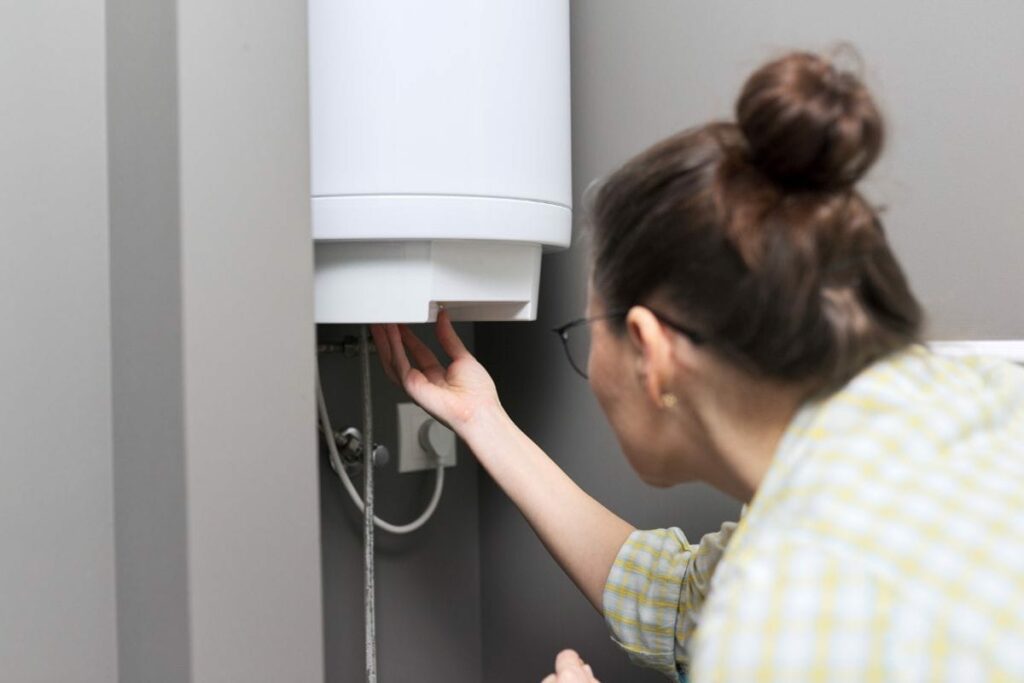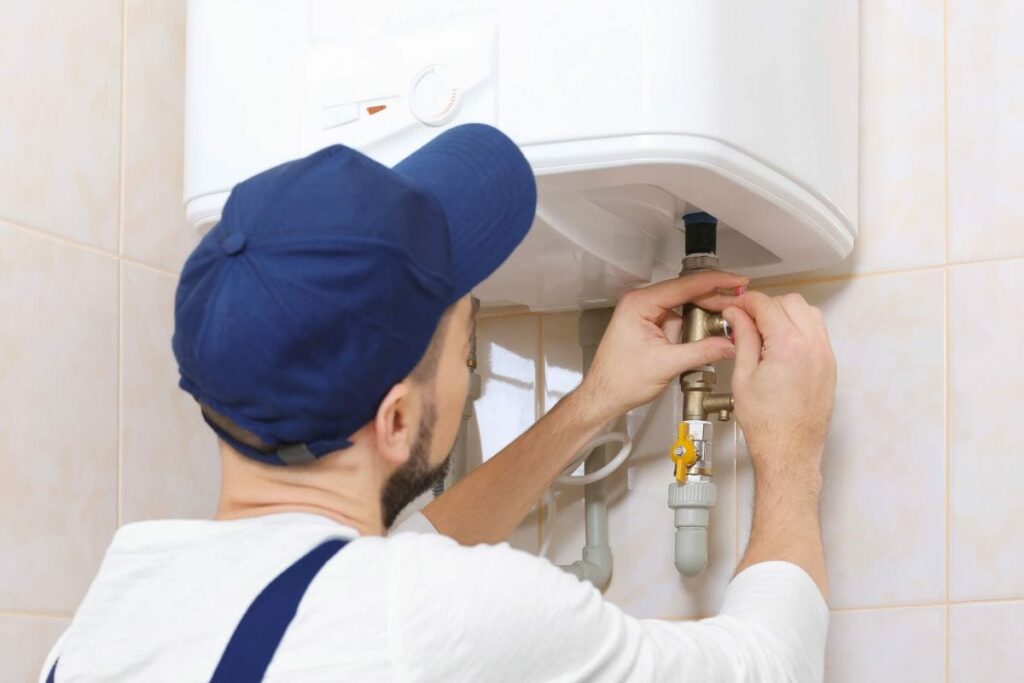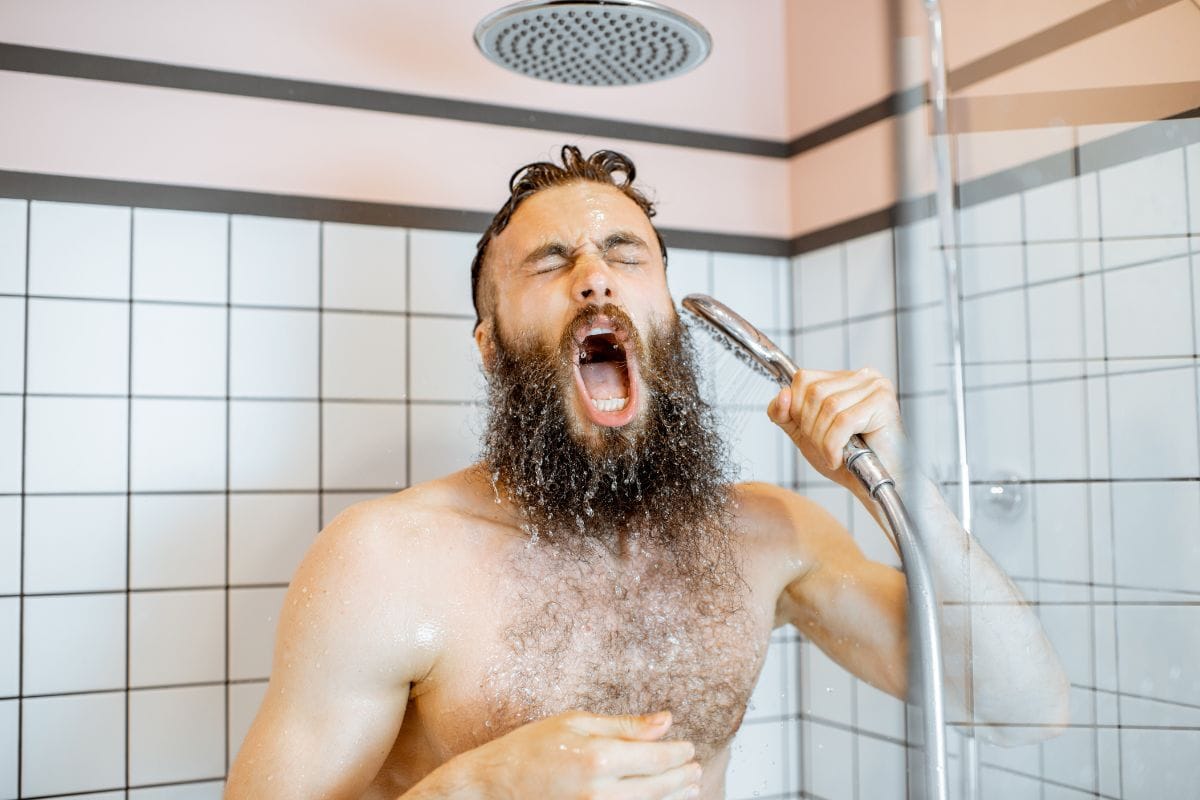Not having hot water streaming down the shower is the biggest frustration. The shower, which is supposed to be relaxing and soothing, turns into torture, especially in the winter when there is no hot water in the shower. I’ll tell you why the water isn’t hot, but rather cold.
The causes of cold shower water can be incorrect water temperature adjustment, problems with the water heater, a damaged dip tube, issues with the shower mixing valve, or even the possibility that all the hot water has been used up, leaving you with just cold water while you shower.
Let’s drill down into what causes cold water and how to fix it so you may continue taking warm showers.
10 Reasons Why Your Shower Water Is Cold
#1 Insufficient Hot Water
The water that we use in the shower first passes through the water heater. The water heater operates in such a way that it consumes a set number of gallons of water over a set period of time.
If you have a lot of water usage in your home, whether it’s a dishwasher or a washing machine, or even if you have a large family living together, there’s a chance that the water is all used up by the time you go for a shower, leaving you with no hot water.
#2 Poorly Adjusted Temperature

The incorrect temperature adjustment is another clear cause of the cold water in your shower.
The temperature should be set at 120°F, which will provide you with water that is the ideal temperature-neither freezing cold nor scorching hot.
#3 Buildup
Water heaters have a fair number of issues that need to be fixed and kept in good condition.
It is quite usual for sediment to build in your water heater over time. Simply put, naturally occurring minerals build in the heater and cause a slew of problems.
Lack of hot water is one of the issues. The buildup results in space being blocked and reduces the tank’s ability to store hot water, which is why your shower might have cold water in it.
#4 Faulty Mixer Valve
The water heater has a mixer valve that mixes hot and cold water to provide you with the ideal water temperature you’ve chosen by altering the temperature for you.
As a result, if the mixer valve is damaged, it won’t be able to mix hot water with cold water, which will prevent you from having hot water in your shower.
#5 Adjustments of the Mixing Valve

The shower mixing valve contains a limit stop that controls the maximum temperature of the shower water.
The limit stop could be set too low, providing you with only cold water. Therefore, In order to get hot water from the shower, you will have to set the setting fairly high.
#6 Damaged Dip Tube
A dip tube is in charge of filling the tank’s bottom with cold water. When the cold water sinks, the hot water will rise to the top.
The dip tube will drop out of the water tank if it is cracked or broken. The cold water will then remain on top of the tank, and it will reach the faucet before the hot water.
#7 Leak in the Water Heater
It goes without saying that you won’t have access to hot water if the tank is leaking.
Although leaks are more common in older water heaters due to major cracks or other faults, they can also occur in new water heaters.
#8 Pilot Light Gone Out
If you have a gas water heater, one of the main factors in hot water streaming from the shower is the pilot light.
If the pilot light goes out, the heater is unable to keep the water warm, resulting in cold showers.
#9 Airlocks in Pipes
High points in your water pipes have a high likelihood of becoming airtight. If that’s the case, you’ll run into problems because it can result in a partial or complete blockage of the water supply.
#10 Frozen Pipes
Last but not least, frozen pipes are another cause of the shower’s cold water. In the winter, pipes often freeze, which mostly blocks the region where the water may flow. Secondly, as the ice melts in the pipe, it will supply cold water rather than hot.
When Should You Replace Your Water Heater?
If your water heater is quite old, you should replace it. Even if it functions perfectly, you should consider replacing it because it has reached the end of its useful life. Other indications that it’s time to replace include rusty water, weird noises, and even high heating bills.
Old Heating Tank
A tankless water heater can last up to 20 years, but a standard water heater only lasts 8 to 12 years. To prevent dealing with further issues brought on by them, you must get them replaced as soon as the heater reaches an older age.
It is always preferable to take safeguards up front rather than stressing out later.
Rusty Water
Corrosion is the main cause of rust buildup in the heating tank. Once corrosion starts to form, it is irreparable, necessitating the replacement of the water heater. It worsens the rust problem, and you end up with rusty water.
Running the tap for a few minutes to see if the water is rusty is one technique to check. However, it is preferable to get an expert to check into the situation and advise you on what should be done before moving forward with replacing it.
Unusual Noises
While the water is heating up in the tank, if you hear weird noises like hitting, rumbling, or cracking, it is a sign that there are problems with the heater that needs to be checked. If the sounds get louder, it’s likely that the heater needs to be replaced.
The buildup of sediment is one of the causes of the sound. As the water heats up, sediment buildup could bang against the wall. Moreover, it is possible that it will enlarge with time and prevent the heater from working properly.
Conclusion
Since you are now already aware of the reasons why your shower water is cold, you can easily have those issues resolved by consulting a professional. Do not squander any more time so that you won’t have to be irritated by cold showers.

Amos Christen graduated with a bachelor’s degree in Interior Design from Drexel University — Philadelphia, PA. Since 2003, Amos has worked with top interior design professionals in this area, including architects and interior/graphic/lighting designers. As a skilled interior designer, Amos Christen is highly versed in fine arts and crafts and uses that to supplement his main area of expertise. He often publishes articles related to home décor on several websites, including Sprucetoilets.com, Sprucebathroom.com, and Mybesuitedhome.com. He also contributes to leading interior design magazines.
